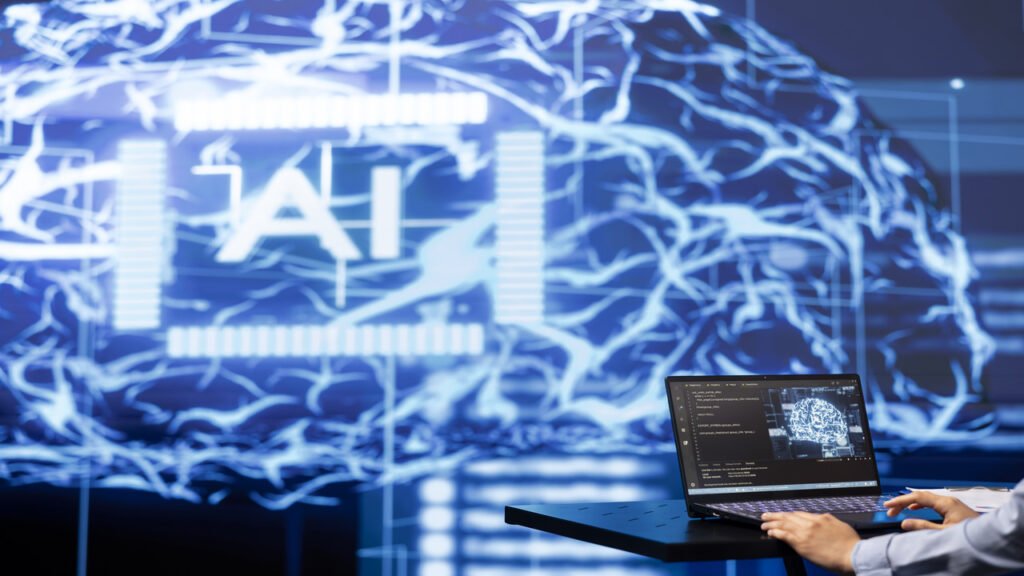What is a Knowledge Based Agent in AI?

Table of Contents
Introduction
Knowledge Based Agent in AI is one of the fundamental concepts that uses stored knowledge to make informed decisions. Artificial Intelligence (AI) has revolutionized various fields by enabling machines to make decisions, solve problems, and simulate human intelligence. Knowledge-based agents are crucial in fields such as expert systems, natural language processing, and automated reasoning.
In this article, we will explore the Knowledge Based Agent in AI, its components, working principles, applications, and benefits.
What is a Knowledge Based Agent in AI?
A Knowledge Based Agent in AI is an system that makes decisions based on a structured set of knowledge. Unlike simple rule-based systems, knowledge-based agents store, retrieve, and apply knowledge to solve complex problems dynamically. These agents use a knowledge base and inference mechanisms to process information intelligently.
Key Characteristics of a Knowledge Based Agent in AI
- Knowledge Representation: Stores facts, rules, and heuristics to reason about a problem.
- Inference Mechanism: Draws conclusions from the knowledge base.
- Decision Making: Uses logic and reasoning to make informed choices.
- Learning Capability: Can update and refine knowledge over time.
Components of a Knowledge Based Agent in AI
A Knowledge Based Agent in AI consists of several essential components that enable it to process and utilize knowledge efficiently.
1. Knowledge Base (KB)
The Knowledge Base is the core component that stores factual information, rules, and heuristics. It consists of:
- Declarative Knowledge: Explicit facts (e.g., “Water boils at 100°C”).
- Procedural Knowledge: Knowledge on how to perform tasks (e.g., solving a math equation).
2. Inference Engine
The Inference Engine is responsible for reasoning using stored knowledge. It applies logic and algorithms to derive conclusions. Two main types of inference methods are:
- Deductive Reasoning: Derives specific conclusions from general rules.
- Inductive Reasoning: Generalizes rules from specific instances.
3. Knowledge Acquisition Module
This module collects and updates knowledge from various sources, including human input, databases, and sensors. It ensures that the knowledge base remains accurate and up-to-date.
4. Knowledge Representation
Knowledge can be represented in different formats, including:
- Semantic Networks: Graph structures showing relationships between concepts.
- Frames: Data structures storing attributes and values.
- Logical Statements: Formal logic expressions (e.g., First-Order Logic).
5. Learning Mechanism
A Knowledge Based Agent in AI can learn from past experiences and refine its decision-making process using machine learning techniques.
How Does a Knowledge Based Agent in AI Work?
The working of a Knowledge Based Agent in AI involves the following steps:
- Perception: The agent collects data from sensors or external sources.
- Knowledge Retrieval: It retrieves relevant information from the knowledge base.
- Reasoning & Inference: It applies logical rules to derive conclusions.
- Decision Making: Based on inference, the agent selects an optimal action.
- Learning & Updating: It refines knowledge based on feedback and experience.
- Action Execution: The agent performs the selected action and updates its knowledge.
Applications of Knowledge Based Agent in AI
- Expert Systems
Knowledge Based Agent in AI power expert systems in medical diagnosis, financial forecasting, and technical support.
- Chatbots & Virtual Assistants
AI chatbots like Siri, Alexa, and Google Assistant use knowledge-based approaches to provide accurate responses.
- Autonomous Systems
Self-driving cars and robotics leverage knowledge-based AI for decision-making in dynamic environments.
- Natural Language Processing (NLP)
Language translation tools and voice recognition systems use KBAs for understanding and processing human language.
- Cybersecurity
Knowledge based AI detects and mitigates cyber threats by analyzing patterns and anomalies.
Advantages of Knowledge Based Agent in AI
- Improved Decision-Making: Uses logical reasoning for better decisions.
- High Accuracy: Reduces errors by relying on structured knowledge.
- Scalability: Can handle vast amounts of information.
- Adaptability: Learns and updates knowledge dynamically.
- Automation of Complex Tasks: Reduces human intervention in problem-solving.
Challenges of Knowledge Based Agent in AI
- Knowledge Acquisition Bottleneck: Collecting and structuring knowledge is time-consuming.
- Complexity: Large knowledge bases require efficient management.
- Data Inconsistencies: Incorrect or outdated knowledge can lead to incorrect decisions.
- High Computational Cost: Reasoning over extensive knowledge bases demands significant computational power.
Future of Knowledge Based Agent in AI
With advancements in AI and Machine Learning, Knowledge Based Agent in AI are becoming more powerful. Future developments will focus on:
- Integration with Deep Learning: Combining symbolic reasoning with neural networks.
- Automated Knowledge Extraction: AI-driven knowledge base updates.
- Enhanced NLP Capabilities: More human-like interactions.
- Greater Adoption in Healthcare & Finance: Expert systems aiding decision-making in critical industries.
Conclusion
A Knowledge Based Agent in AI is a powerful system that utilizes structured knowledge to make intelligent decisions. With applications spanning multiple industries, KBAs play a crucial role in expert systems, chatbots, cybersecurity, and more. As AI continues to evolve, Knowledge Based Agents will become even more sophisticated, offering advanced decision-making capabilities and automation.
By leveraging knowledge representation, inference mechanisms, and learning, Knowledge Based Agent in AI enhance the efficiency and accuracy of AI-driven solutions, making them an integral part of modern AI applications.
Do you want to build AI-powered solutions leveraging Knowledge Based Agents? Contact us at Devwemo Technologies for cutting-edge AI solutions tailored to your business needs !

